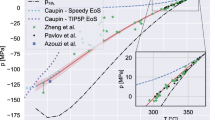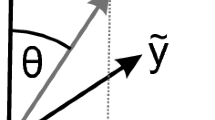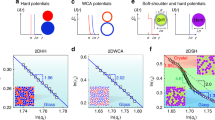Abstract
IN NATURE of Mar. 23, 1929, p. 448, N. Rashevsky calls into question the experimentally determined values for the compressibility coefficient. He points out that there is good evidence that sub-microscopic cracks depress the true tensile strength of materials to small values, and suggests that these cracks may likewise lead to compressibility coefficients much greater than the true coefficients, which in fact may be zero. In an attempt to estimate the volume of these cracks, he concludes that possibly several per cent of the volume of crystals is void. Since the total volume change over a range of 10,000 atmospheres is ordinarily only a few per cent, he reasons that “it is not impossible that practically the whole change of the volume is due to the decrease of the size of the cracks”.
This is a preview of subscription content, access via your institution
Access options
Subscribe to this journal
Receive 51 print issues and online access
$199.00 per year
only $3.90 per issue
Buy this article
- Purchase on Springer Link
- Instant access to full article PDF
Prices may be subject to local taxes which are calculated during checkout
Similar content being viewed by others
Author information
Authors and Affiliations
Rights and permissions
About this article
Cite this article
MEHL, R., CANFIELD, R. Compressibility of Crystals. Nature 124, 478–479 (1929). https://doi.org/10.1038/124478a0
Issue Date:
DOI: https://doi.org/10.1038/124478a0
Comments
By submitting a comment you agree to abide by our Terms and Community Guidelines. If you find something abusive or that does not comply with our terms or guidelines please flag it as inappropriate.



